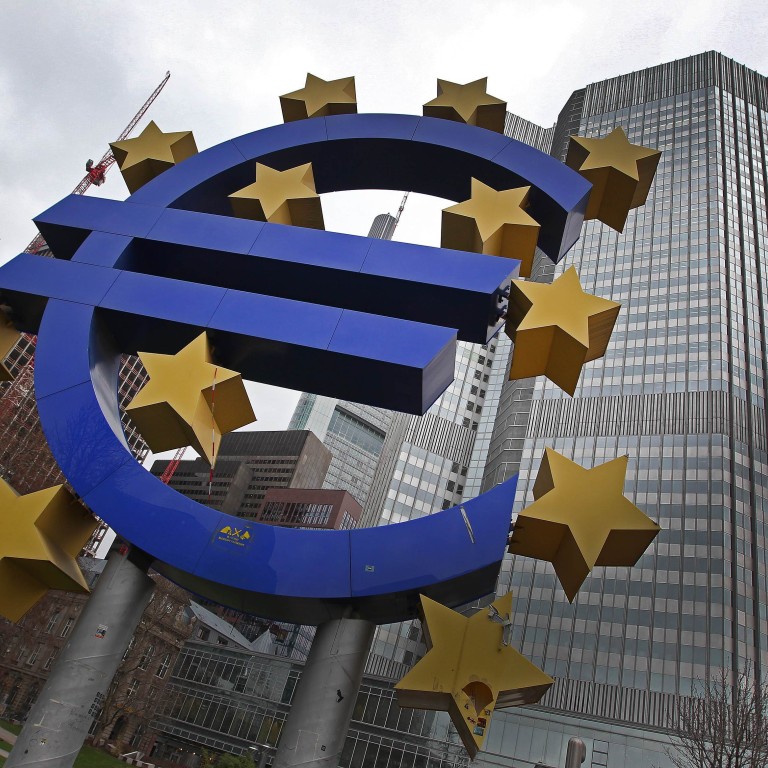
European Union launches clampdown on shadow banking
Special funds used by big companies to park billions of euros of cash face stricter rules to make them safer, the European Commission said on Wednesday, taking a first step to reform unregulated finance known as shadow banking.
The draft law, criticised by industry as too harsh but by Germany as not strict enough, will regulate the euro money market funds sector, demanding some funds set aside cash buffers to avoid a panic should many investors withdraw money at once.
This would lower what EU financial services chief Michel Barnier said was a risk to the financial system from the trillion euro sector, but users of the funds warn that demanding funds hoard more for a rainy day would make them too expensive.
The changes are part of efforts to shine a light on shadow banking, a 24-trillion-euro industry in Europe - half the world’s total - that comprises money market funds, some hedge funds, and firms involved in securities lending and repurchase markets.
Such groups borrow and lend, just like banks do, but because they are not banks they often fall outside the remit of regulation, which is why they are considered to be in the “shadow” of traditional finance.
In the European Union, money market funds are mainly based in France, Ireland and Luxembourg and are heavily used by companies in Germany, Britain and elsewhere.
For companies, they are an alternative home for short-term cash so that they can spread their reserves rather than leaving them with one bank. Unlike banks, the funds have no access to support from central banks such as the European Central Bank if things go wrong.
But the vast unchartered territory unnerves regulators in part because the sector is closely intertwined with banks, who often sponsor the funds as well as relying on them for finance themselves.
“We are not pointing an accusing finger at the sector. We just want it to work smoothly. There should be transparency and there should be good supervision,” Barnier told reporters. “Finance should be serving the economy and not itself alone.”
The European plans draw on ideas in a global blueprint that will be submitted for approval to the world’s 20 leading economies when their leaders meet in Russia on Thursday and Friday. In some cases, the EU reform is more ambitious.
The reform is a response to the 2007-2008 financial crisis, which was brought on by the collapse in prices of securities tied to risky home loans.
“Shadow banking was at the heart of the crisis,” said Frederic Hache, a former derivatives banker who works with public-interest group Finance Watch. “As bank regulation has since tightened, activity may shift into the shadow sector.”
The most controversial element in Barnier’s proposal is a requirement for one type of money market fund, known as constant net asset value (CNAV) funds, to hold a cash buffer equivalent to 3 per cent of their assets, with a three-year phase in.
Such funds seek to maintain a stable price of 1 euro per share when investors redeem or buy shares in them, to keep the value of their holding steady.
The buffer would provide a safety cushion in case there is a run on the fund, as seen in the United States when the value of one US fund “broke the buck” and fell below $1 per share.
Funds whose share prices float in line with performance are spared the requirement of maintaining the buffer. Excluding them is meant to prompt funds to adopt the model of floating share prices, which are seen by regulators as more transparent.
The funds in the EU, which include BlackRock and Legal & General, are evenly split between the two types.
Barnier said he was not “waging a war” on CNAV funds and that the buffer was a compromise after calls from the European Systemic Risk Board, a body linked to the ECB, Germany and France for an outright ban.
Germany’s Finance Ministry said on Wednesday that the Commission’s blueprint had not gone far enough.
Industry, on the other hand, argued for a gentler approach. The Institutional Money Market Funds Association, an industry body, said some of the proposed regulatory changes would make the market more resilient but that a buffer was inappropriate.
Martin O’Donovan, deputy policy and technical director at Britain’s Association of Corporate Treasurers said a three per cent buffer would make funds unviable. “To cover that, their rates would no longer be competitive.”
The United States is also discussing new rules for money market funds but has stopped short so far of proposing cash buffers.
The draft law also effectively bans credit ratings on money market funds, to stop a potential downgrade sparking panic, a proposal criticised by ratings agencies Moody’s and Standard & Poor’s.
The European Union’s 28 member states and the bloc’s parliament have the final say on the draft law and some changes are likely.
Barnier also published a “roadmap” on how the EU plans to regulate other parts of the wider sector, including a suggestion that all institutions involved in shadow banking set aside capital buffers to cover risks.
Reuters

